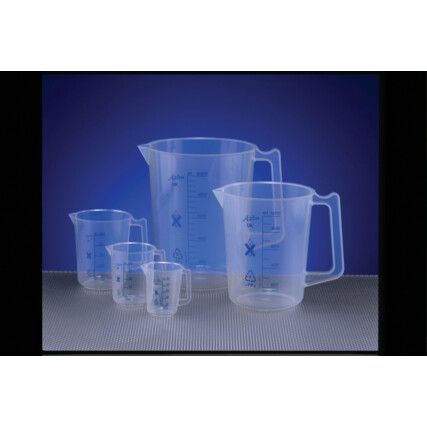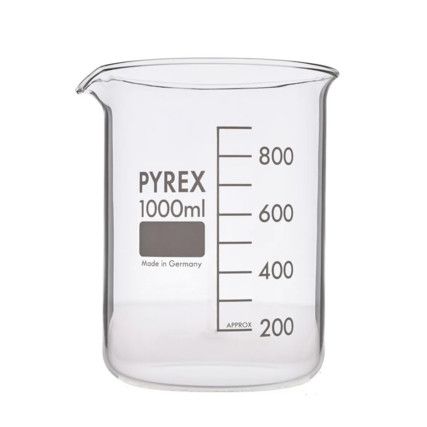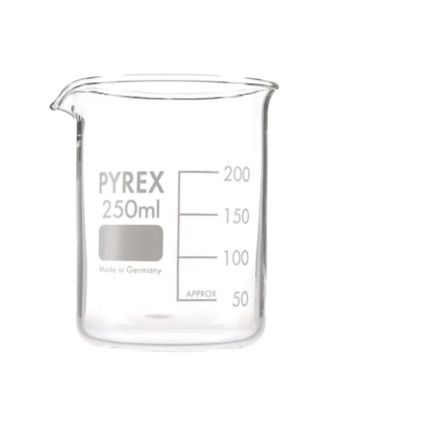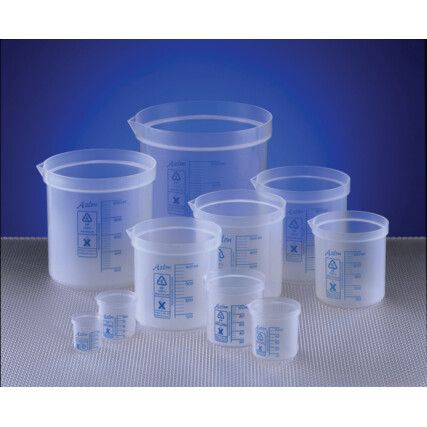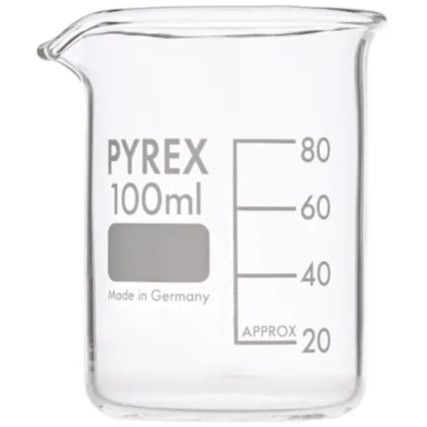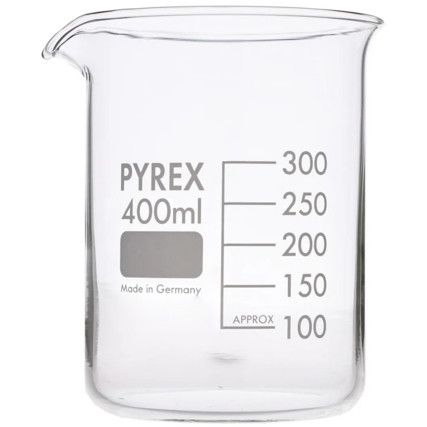Jugs & Beakers
Jugs and beakers are simple containers that are used for a wide variety of purposes from measuring, mixing, stirring, to heating liquids and most commonly used in laboratory settings and chemical environments. In appearance they are most often of a cylindrical shape with a small pouring spout and a flat bottom. The containers rarely have lids due to the spout design, but instead can be covered, when necessary, with watch glass that prevents loss of contents or contamination to occur. Cromwell have a selection of beakers and measuring jugs from leading brands such as Pyrex and Azlon.
What are jugs and beakers?
Beakers are commonly made of glass, most often a type called borosilicate glass but are also made with plastic (polypropylene, polythene or PTFE) or metal (aluminium or stainless steel).
Jugs are a standard piece of laboratory, industrial or food equipment, often made from a tough light weigh plastic. Designed to hold and measure liquids, each with a visible graduation measurement marker and are available in a wide range of heights measured in millimeters (mm), in a selection of pack quantities.
Why jugs and beakers?
Beakers are ideal for heating due to their resistance to heat due to their thick walls, bottom and radius making them ideal for laboratories and research sectors. The flat bottom design requires no additional equipment so can be placed comfortably on flat surfaces such as a heated plate, worksurface or bench. Beakers are designed with a wide opening to allow liquids or other materials to easily be added and are available in a range of sizes.
Jugs are a standard piece of laboratory, industrial or food equipment, often made from a tough light weigh plastic. Designed to hold and measure liquids, each with a visible graduation measurement marker and are available in a wide range of heights measured in millimeters (mm), in a selection of pack quantities. Most have a comfortable easy to use ergonomic handle design to assist when poring and a non-drip spout designed to prevent drip.
When are Jugs and beakers used?
Jugs and beakers are used in a range of industries, predominantly used within a laboratory setting for scientific experiments and research, or in food production industries. Beakers can be used for a huge variety of purposes within a laboratory due to their resistance to thermal shock, alkalis, acids. Beakers are capable of holding both solid and liquid samples or may be used as a reaction container, or to catch liquids from titrations and filtrates during filtering operations making them a vital piece of equipment.
Types of jugs and beakers
There are 3 main beaker types:
• Lower beakers - are the standard type, also known as griffin beakers. They typically have a height of approx 40 percent of their diameter.
• Tall beakers - known as a berzelius beaker have a design where the height is approx twice the diameter.
• Crystallizer beakers - flat style beaker.
Jugs are available with various volume capacity, ranging from 50ml to 2000ml. All have clearly visible indelible graduations to accurately display the volume contained and have a moulded non-drip pouring spout that aids precision poring and reduces spillage.
Considerations when selecting Jugs and beakers
• Temperature range - when selecting beakers and jugs consider the temperature range you will be using it in as there are different heat tolerances designed to be used at certain temperatures and in specific environments.
• Material/fluid type - a range of beakers and jugs are available to specifically suit the material and fluid type you are using.
• Industry standards - jugs and beakers are made to industry standards that in:
• BS 5404: Part 1 1976
• ISO 3819
• DIN 12331
FAQs
Are beakers accurate or precise?
Beakers are more often than not graduated or have volume indicator marks on the side to show the contained volume. These main marks are intended for obtaining an estimation of volume rather than a precise measurement of volume.
